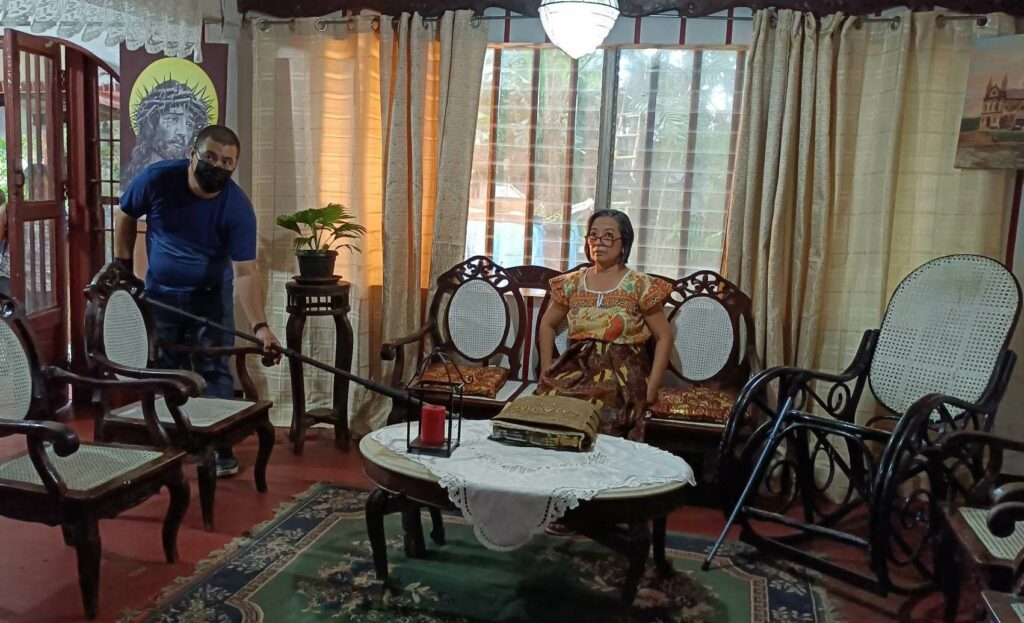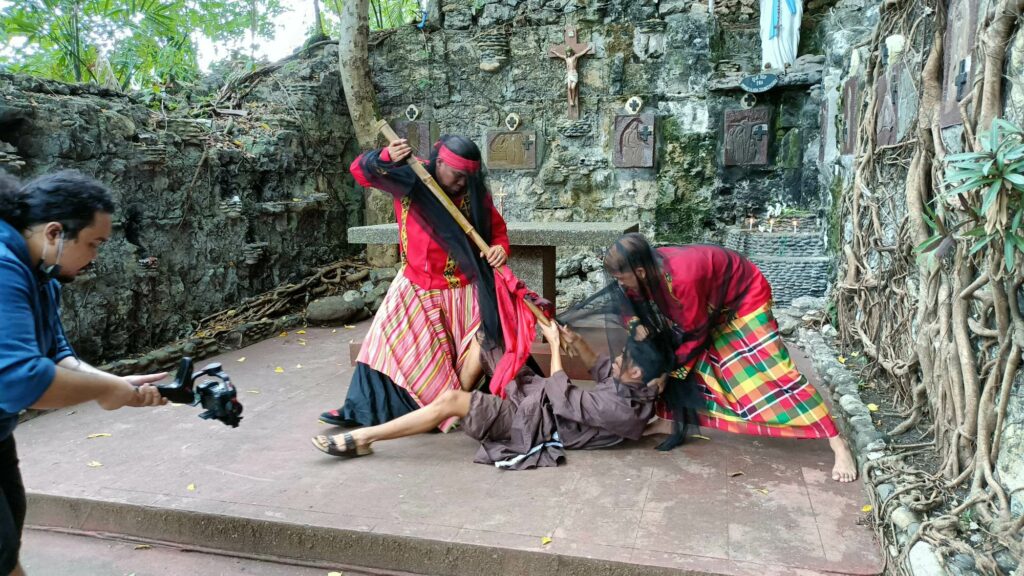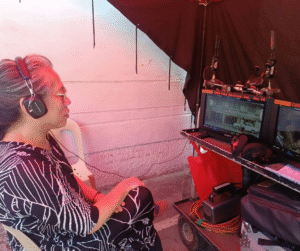By Delya Apsari
If we were to talk about how a platter of legacy and pride would look like in a movie, Katagman (2022) would be a signature dish, served with love by Ramon Tenoso as the chef. As a UK-based playwright, screenwriter, film and artistic director, Tenoso successfully captured 450 years of the history of Oton, his hometown in the Philippines, in a 24-minute film. With only ten days of rehearsal, 13 days of shooting, and a very tight budget, so far, the docu-drama has won 21 international awards. Tenoso bagged several awards as best director, notably in the documentary short category at the Cannes World Film Festival 2022.
The film Katagman was made in commemoration of the 450th anniversary of the establishment of Oton, a premier municipality located in the province of Iloilo. It is also the name of its annual town festival, known for its vibrant performances and colours. Due to the pandemic, the festival was cancelled for a couple of years. Tenoso was vacationing in Iloilo in 2022 when musician and artist Steve Magbanua convinced him to help the Ogtonganon Artists Guild in adapting the festival performance into a film production.
The film went on to win multiple international awards, including the best short documentary at the Accolade Global Film Competition and the best historical film at the Golden Lemur International Film Festival.

So, when Direk or Chie – his nicknames – went home to Oton in January, he was lavished with a fiesta-like welcome by local officials and fellow Ilonggos. During our online interview, Tenoso, who was wearing a necklace a and sleeveless shirt, showed us the early evening view from his house: a sun-kissed sea, white-draped tables and chairs, and a TV for the “sing-along” or karaoke, a typical activity in Filipino parties.
“This is actually the second party,” Tenoso said with a shy chuckle. “When we arrived here…we went to our town and they hosted an awarding ceremony where town officials gave me recognition as the ‘Son of the Town.’ They also acknowledged all the awards – so it was certificate after certificate after certificate.” He thought that was the end of it but in the afternoon, he went to see the mayor and the governor of Iloilo and guess what? “They were also giving me an award!” said Tenoso.

“For me, I’m happy to be awarded on a bigger scale. But with the award from the province, I was touched. Because everyone is saying ‘Ramon has elevated Iloilo.’” He explained that people often ask “Where is Oton?” Through the film, people now know that Oton is part of Iloilo.
The movie is told from the point of view of a grandmother who was celebrating her birthday with younger family members and neighbours. She takes the audience on a journey through time as Oton, the renowned gem of Panay Island, celebrates its rich and vibrant heritage.
Founded in the year 1572, Oton was the first settlement established in Panay during the Spanish period. Proudly serving as the seat of the Alcadia de Panay from 1572 to 1581, Oton has cemented its place in Philippine history as a centre of governance.
Weaving together the threads of its storied past through an ethereal tapestry of music, modern dance and theatrical performances, Katagman highlights the tragedy of Datu Paiburong, Oton’s famous golden death mask, its pagan beliefs, and the advent of Christianity. The film also relives the resistance of the Babaylans as they stood their ground against the forces of change.
Throughout the movie, the grandmother tells the story during a continuous power cut. As expected from Tenoso’s brilliant mind, there are a few Iloilo issues or “fun facts” that he wanted the international audience to get familiar with.

“Here (in Iloilo), people know that once a month, there will be a power cut, either unannounced or a planned power cut. But, aside from that, we also have sudden power outages caused by weather disturbances, for example, typhoons. So, we are accustomed to the experience (like in the movie) of you having a party and then suddenly, there’s a power cut.”
“I was surrounded by creative people. We have experienced choreographers, dancers who are skilled in traditional dancing – even a male Filipino who’s a Bali dancer! The challenge was to arrange the dance or movements to suit the filming, because most of them are performed on stage, so they’re used to big spaces. But of course, if you’re filming, you will only highlight specific movements.”
Tenoso has made a lasting impact on the Philippine and British theatre scenes. Beginning his career at the young age of 13, Tenoso has written a total of 31 plays, including 29 original pieces and 2 adaptations, showcasing his versatility and skill in a range of genres from drama to musicals and even horror fantasy. In recognition of his achievements, Tenoso’s film Chained was awarded Best Feature Film at the Falcon International Film Festival in 2021. Furthermore, Tenoso is the founder of the Philippine Theatre UK, the only active British-Filipino community theatre in Europe and has trained 20 individuals in theatre arts through his overseas project, “Long Distance Learning in Theatre Arts.”
“I think my message would be: learn and appreciate your culture, your tradition. I used to see myself as a foreigner in my own province before because I seldom stayed here and I didn’t really appreciate my own culture. But since I’ve done Katagman, that’s where I learned to know more about our pre-colonial history, and it’s just amazing to get in touch with your roots.”
“As an artist, this is my second film. It’s not like I’ve been doing this for a while. Luckily, it was successful. I think, just believe in yourself. You don’t know what’s gonna happen and try to collaborate with other artists. Especially as a playwright myself, I believe working with different people at all levels and all walks of life, that’s how you become creative.
Top photo credit: Ramon Tenoso
About the author

Delya Apsari is an Indonesian journalist currently pursuing a master’s degree in multimedia journalism at Bournemouth University. She has covered the Surabaya bombings while working for Surya Daily, one of Indonesia’s major newspapers. She has also written for Indonesian online outlets. At Bournemouth, she has led a team to explore stories about racism and inequality in the UK for The Breaker, the news website run by master’s students of the Department of Communication and Journalism.













